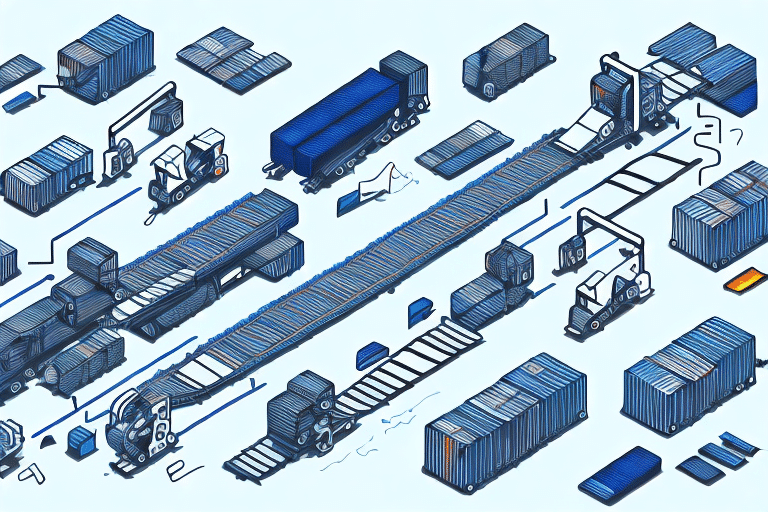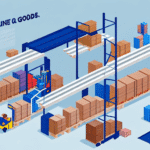The Necessity of Automation in Scaling Ecommerce Operations
Ecommerce has revolutionized the retail industry, providing customers with the convenience of shopping anytime and anywhere. As online shopping continues to grow, ecommerce businesses face increasing challenges in scaling their operations to meet rising demand. Automation emerges as a critical solution for addressing these challenges, enabling businesses to enhance efficiency, reduce costs, and maintain high levels of customer satisfaction.
Benefits of Automation in Ecommerce
Improved Efficiency and Reduced Labor Costs
Automation streamlines various operational processes, leading to significant improvements in efficiency. By automating routine tasks such as inventory management, order processing, and shipping, businesses can reduce labor costs and allocate resources more effectively. According to a McKinsey report, automation can increase productivity by up to 30%, allowing businesses to handle higher volumes without proportional increases in staff.
Minimization of Errors and Fraud Prevention
Automated systems enhance accuracy by minimizing human errors in order fulfillment and inventory tracking. Additionally, automation plays a crucial role in fraud prevention by implementing secure payment processing and monitoring suspicious activities in real-time. The Association of Certified Fraud Examiners highlights that automated fraud detection systems can reduce fraudulent transactions by over 50%.
Data Collection and Analysis
Automation facilitates the efficient collection and analysis of data related to customer behavior, sales trends, and inventory levels. This data-driven approach enables businesses to make informed decisions, optimize marketing strategies, and forecast demand accurately. According to SAS Insights, data-driven companies are three times more likely to report significant improvements in decision-making.
Implementing Automation for Growth and Efficiency
Streamlining Operations
Implementing automated systems in key areas such as inventory management, order processing, and customer service can drastically enhance operational efficiency. Automated inventory systems ensure real-time tracking and automatic reordering, reducing the risk of stockouts and overstocking. Similarly, automated order processing accelerates fulfillment times, leading to quicker delivery and increased customer satisfaction.
Scalability Without Additional Staff
One of the standout advantages of automation is the ability to scale operations without proportionally increasing the workforce. Automated systems can handle large volumes of transactions and customer interactions, allowing businesses to expand their reach without the need for extensive hiring. This scalability is essential for maintaining growth momentum in a competitive market.
Optimizing Resource Allocation
By automating repetitive and time-consuming tasks, businesses can reallocate human resources to more strategic functions such as marketing, product development, and customer relationship management. This not only enhances overall productivity but also fosters innovation and long-term business growth.
Enhancing Customer Satisfaction and Loyalty
Personalized Shopping Experiences
Automation enables the delivery of personalized shopping experiences by analyzing customer data to tailor product recommendations and marketing messages. Personalized experiences significantly enhance customer satisfaction and increase the likelihood of repeat purchases. A study by Salesforce found that 70% of customers say a company's understanding of their personal needs influences their loyalty.
Efficient Customer Service
Automated customer service tools, such as chatbots and AI-driven support systems, provide instant responses to customer inquiries and issues. This leads to faster resolution times and higher customer satisfaction rates. According to IBM, businesses that implement chatbots see a 30% increase in customer satisfaction.
Reliable Order Fulfillment
Automation ensures that orders are processed accurately and delivered on time, which is critical for maintaining trust and loyalty among customers. Reliable order fulfillment reduces the likelihood of returns and negative reviews, further strengthening the business’s reputation.
Best Practices for Implementing Automation in Ecommerce
Identify Key Processes for Automation
Begin by analyzing your current operations to identify processes that would benefit most from automation. Focus on areas that are time-consuming, prone to errors, and have a high impact on customer satisfaction and business efficiency.
Select the Right Automation Tools
Choosing the appropriate automation tools is crucial for successful implementation. Ensure that the tools align with your business goals, are compatible with existing systems, and are user-friendly. Platforms like Zapier and Shopify Automations offer versatile solutions tailored for ecommerce businesses.
Train Your Team
Proper training is essential to ensure that your team can effectively utilize automated systems. Invest in training programs and provide ongoing support to help employees adapt to new technologies and workflows.
Monitor and Optimize
Continuous monitoring and optimization of automated processes are necessary to maintain efficiency and address any issues that arise. Use analytics and feedback to refine your automation strategies and achieve optimal results.
Measuring the ROI of Automation in Ecommerce
Assessing Cost Savings
One of the primary indicators of ROI is the reduction in operational costs achieved through automation. Calculate savings from decreased labor costs, minimized errors, and more efficient resource allocation to determine financial benefits.
Evaluating Performance Metrics
Monitor key performance indicators (KPIs) such as order fulfillment time, customer satisfaction scores, and sales growth to assess the impact of automation. Improved KPIs indicate a positive ROI and justify further investment in automation technologies.
Long-Term Benefits
Consider the long-term advantages of automation, including enhanced scalability, sustained customer loyalty, and the ability to quickly adapt to market changes. These factors contribute to ongoing profitability and business resilience.
The Future of Ecommerce: Embracing Automation for Success
Advancements in Artificial Intelligence and Machine Learning
Future advancements in AI and machine learning will further enhance the capabilities of automation in ecommerce. These technologies will enable more sophisticated data analysis, predictive analytics, and personalized customer interactions, driving even greater efficiency and customer satisfaction.
Integration of Emerging Technologies
Emerging technologies such as augmented reality (AR) and virtual reality (VR) will integrate with automated systems to offer immersive shopping experiences. These integrations will set forward-thinking ecommerce businesses apart in a competitive landscape.
Sustainable and Ethical Automation
As businesses increasingly prioritize sustainability and ethics, automation will play a role in optimizing resource usage, reducing waste, and ensuring ethical supply chain practices. Automated systems can help monitor and enforce sustainability standards, contributing to a responsible business model.
Conclusion
Automation is indispensable for ecommerce businesses aiming to scale their operations efficiently and sustainably. By implementing automated systems, businesses can enhance operational efficiency, reduce costs, and deliver superior customer experiences. As technology continues to evolve, embracing automation will be pivotal for ecommerce businesses to stay competitive and achieve long-term success in the ever-changing market landscape.






















